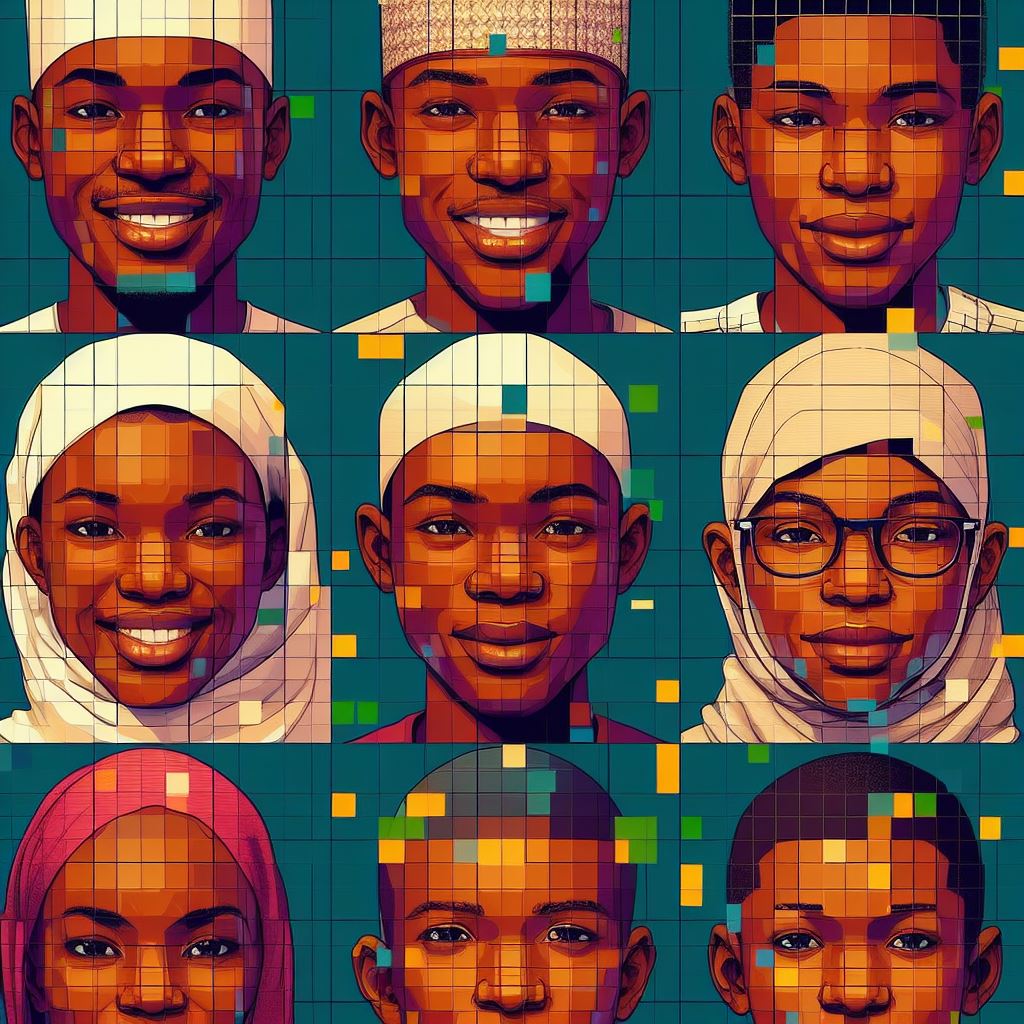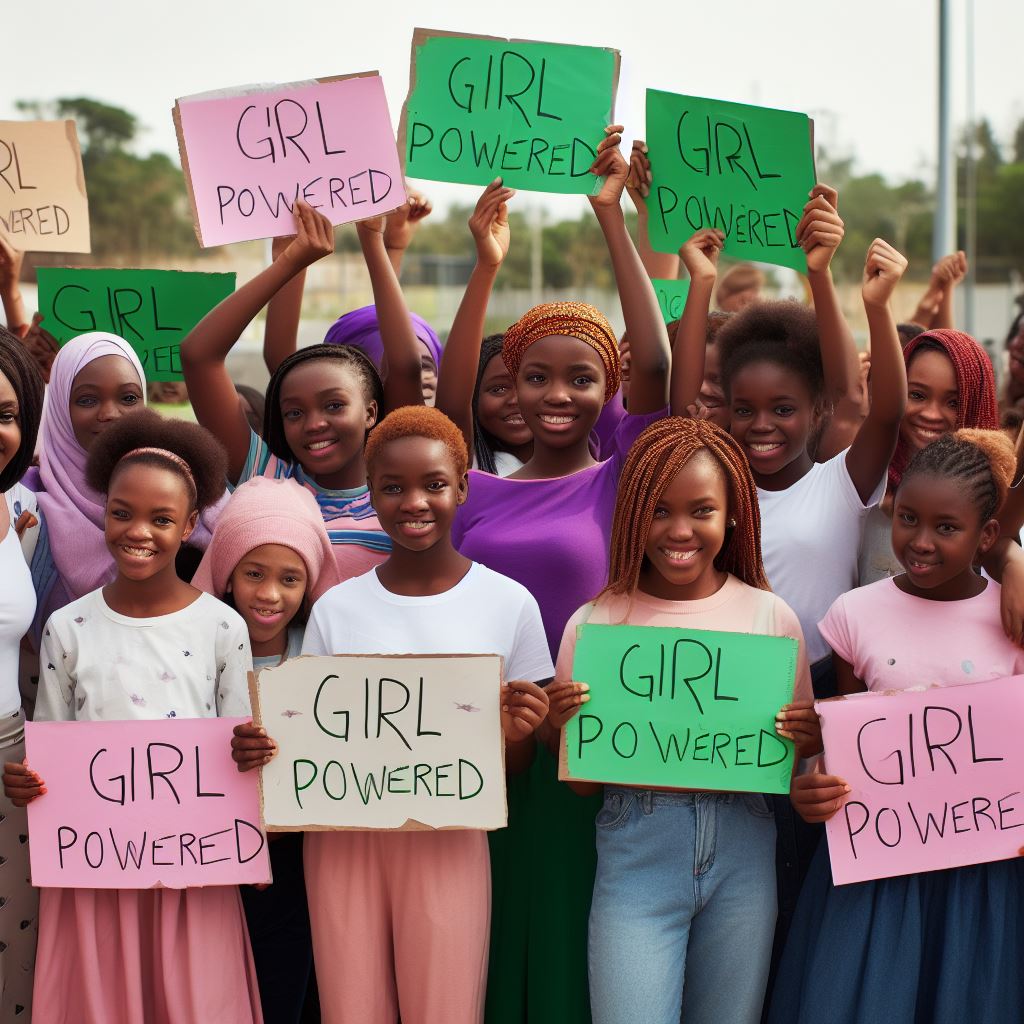Introduction
Introducing the world of kid coders in Nigeria, where young minds are shaping the future. In today’s fast-paced digital era, the demand for coding skills has skyrocketed.
Children in Nigeria are not immune to this trend, and they are embracing coding with enthusiasm.
As the world becomes increasingly reliant on technology, the ability to code is seen as a valuable skill, and this holds true for Nigeria as well.
Kid coders in Nigeria are not just learning to code; they are preparing themselves for a future filled with opportunities in technology and innovation.
In this blog post, we will explore the world of kid coders in Nigeria, their journey, the challenges they face, and the initiatives that are helping them thrive in this exciting and rapidly evolving field.
Join us as we dive into the inspiring world of young coders in Nigeria.
The benefits of introducing coding to kids in Nigeria
Introducing coding to kids in Nigeria can have several benefits for their development and future opportunities.
Improved problem-solving and critical thinking skills
- Coding teaches kids to break down complex problems into smaller, manageable steps.
- They learn to analyze situations, identify patterns, and develop logical solutions.
- These problem-solving skills can be applied to various aspects of life, not just coding.
Increased creativity and innovation
- Coding encourages kids to think outside the box and come up with unique solutions
- They can express their creativity by designing websites, developing apps, or creating animations.
- This fosters innovation and gives them the ability to create something new and valuable.
Better preparation for future job opportunities in technology
- The world is becoming increasingly digitized, and tech skills are in high demand.
- By exposing kids to coding at an early age, they are better prepared for future tech jobs.
- They can pursue careers in software development, data analysis, cybersecurity, and more.
Empowerment and self-confidence
- Coding empowers kids to create and control the technology they use.
- It gives them a sense of accomplishment and boosts their self-confidence.
- As they see their coding projects come to life, they gain a belief in their abilities.
In summary, introducing coding to kids in Nigeria has numerous benefits.
It enhances their problem-solving and critical thinking skills, sparks creativity and innovation, prepares them for future tech job opportunities, and instils empowerment and self-confidence.
By investing in coding education for children, Nigeria can secure a brighter future for its youth in the technology-driven world.
Read: How to Make Coding Fun: 7 Tips for Kids and Parents
The Current State of Coding Education in Nigeria
In Nigeria, there is a pressing need to introduce coding education at an early age. Unfortunately, coding education is lacking in many schools across the country.
The Nigerian educational system has failed to prioritize coding as a vital skill. As a result, the majority of students are not exposed to coding until university or even later.
This lack of coding education in schools is hindering the development of a tech-savvy generation. Without a solid foundation in coding, Nigeria risks falling behind in the global digital economy.
Lack of Coding Education in Schools
One of the main issues is the lack of coding education in Nigerian schools.
Unlock Your Unique Tech Path
Get expert tech consulting tailored just for you. Receive personalized advice and solutions within 1-3 business days.
Get StartedThe curriculum is primarily focused on traditional subjects, neglecting the importance of coding. Many schools do not have the necessary resources or qualified teachers to offer coding classes.
This results in a missed opportunity for students to develop crucial digital skills. If coding education is not prioritized, Nigeria will struggle to compete on a global scale.
Limited Resources and Infrastructure
Another challenge is the limited resources and infrastructure for coding education in Nigeria.
Many schools lack computers, internet access, and coding software necessary for effective learning. This digital divide creates barriers for students to gain practical coding experience.
Without proper resources, students are unable to fully explore the world of coding and unleash their potential.
Investments in infrastructure and resources are essential to bridge this gap and empower future coders.
Gender Disparities in Coding Education
Gender disparities further exacerbate the issue of coding education in Nigeria.
Girls, in particular, are significantly underrepresented in coding classes and tech-related fields. Social norms and stereotypes discourage girls from pursuing coding as a career path.
It is crucial to promote inclusivity and create an environment where all genders have equal opportunities.
Encouraging girls to embrace coding will not only bridge the gender gap but also bring diverse perspectives to the field.
In order for Nigeria to keep pace with global technological advancements, coding education must be a priority.
The current state of coding education in Nigeria is inadequate, with a lack of resources and infrastructure, and gender disparities.
By addressing these issues and investing in coding education, Nigeria can foster a new generation of innovative thinkers and creators.
It is high time to recognize the importance of coding and provide every child with the opportunity to learn this valuable skill.
Unlock Premium Source Code for Your Projects!
Accelerate your development with our expert-crafted, reusable source code. Perfect for e-commerce, blogs, and portfolios. Study, modify, and build like a pro. Exclusive to Nigeria Coding Academy!
Get Code
The Importance of Early Exposure to Coding
When it comes to coding, early exposure is key. Young minds possess a unique ability to learn new skills, making it the perfect time to introduce them to coding.
Youth is the Gateway to Learning
- Young minds are like sponges, ready to soak up knowledge and develop new skills.
- During childhood, the brain is more receptive to learning, allowing children to grasp coding concepts quickly.
- By exposing kids to coding at an early age, we unlock their potential to become future tech leaders.
Coding Strengthens Logical Thinking
- Logic is the foundation of coding, and early exposure helps develop this crucial skill.
- When kids learn to code, they start to think logically, breaking down complex problems into smaller, manageable parts.
- Logical thinking acquired through coding spills over into other areas of life, enhancing problem-solving skills.
Preparation for Advanced Coding Concepts
- Early exposure to coding sets the stage for kids to grasp advanced coding concepts in the future.
- By starting early, children gain a solid foundation in programming languages and develop computational thinking skills.
- This early exposure prepares them for more complex coding tasks and future career opportunities in technology.
In short, the importance of early exposure to coding cannot be overstated. By introducing children to coding at a young age, we tap into their natural ability to learn and foster logical thinking.
This early exposure also lays the groundwork for understanding advanced coding concepts, opening doors to future success in the ever-evolving world of technology.
Read: Guide to Coding Bootcamps for Kids in Lagos
Initiatives and organizations promoting kid coding in Nigeria
There has been a growing push for more kid coders in Nigeria, with several initiatives and organizations leading the way.
Nigeria Coding Academy and its efforts
The Nigeria Coding Academy is at the forefront of promoting coding among children in Nigeria. They provide training and mentorship programs for kids to learn coding from a young age.
The academy organizes coding bootcamps, workshops, and hackathons to engage children and expose them to the world of coding. They believe that coding skills are essential for the future of Nigeria’s economy.
The Nigeria Coding Academy also partners with schools to integrate coding into the curriculum, ensuring that more children have access to coding education.
Other notable organizations and initiatives
In addition to the Nigeria Coding Academy, there are several other organizations and initiatives working towards promoting kid coding in Nigeria.
- Codulab: Codulab is a non-profit organization that offers coding classes and workshops for children in Nigeria. They focus on making coding education accessible to all.
- STEMHub Foundation: The STEMHub Foundation aims to inspire and empower young Nigerians, especially girls, to pursue careers in STEM fields, including coding.
- Nerd Kid Africa: Nerd Kid Africa is an organization that organizes coding competitions and workshops to promote coding skills among children in Nigeria.
These organizations recognize the importance of early exposure to coding and are making efforts to ensure children have access to coding education.
Success stories of kid coders in Nigeria
There are numerous success stories of children in Nigeria who have embraced coding and achieved remarkable results.
- Emmanuella Mayaki: Emmanuella Mayaki, an 11-year-old girl from Edo State, Nigeria, has gained recognition for her coding skills and was appointed as a coding instructor in her school at a young age.
- Farida Bedwei: Farida Bedwei, a Ghanaian-Nigerian software engineer, started coding at a young age and went on to co-found a software company. She is an inspiration for young coders in Nigeria.
- Andrew Akpan: Andrew Akpan is a Nigerian teenager who developed a mobile app to address health issues in Nigeria. His app gained recognition and has made a positive impact in the country.
These success stories demonstrate the potential of young coders in Nigeria and highlight the need for more initiatives to support and nurture their talent.
Overall, initiatives and organizations promoting kid coding in Nigeria are playing a crucial role in equipping children with essential skills for the future.
The Nigeria Coding Academy, along with other notable organizations, are leading the way by providing training, mentorship, and opportunities for kids to engage with coding.
The success stories of young coders further emphasize the importance of nurturing and supporting coding talent from a young age.
With continued efforts and investments in kid coding, Nigeria can develop a generation of skilled coders who will drive innovation and contribute to the country’s economic growth.
Read: How Coding Benefits the Cognitive Skills of Kids
Delve into the Subject: Setting Up a Home Lab for Ethical Hacking Practice
Challenges Faced in Promoting Kid Coders in Nigeria
When it comes to promoting kid coders in Nigeria, there are several challenges that need to be addressed.
These challenges hinder the growth and development of coding skills among Nigerian children, and it is important to understand them in order to find effective solutions.
Lack of Awareness and Understanding among Parents and Educators
- Many parents and educators in Nigeria are not aware of the importance of coding skills for their children.
- They do not understand the potential career opportunities and the overall value of coding in the digital age.
- This lack of awareness and understanding leads to a limited interest and support for coding education.
Limited Access to Coding Resources and Technology
- Another challenge faced in promoting kid coders in Nigeria is the limited access to coding resources and technology.
- Many schools and communities lack the necessary infrastructure and equipment for teaching coding.
- This limits the exposure and practical application of coding skills, hindering the learning process.
Socio-Economic Barriers and Inequality in Opportunities
- Socio-economic barriers and inequality in opportunities also pose as challenges in promoting kid coders in Nigeria.
- Children from disadvantaged backgrounds may not have access to quality coding education.
- This perpetuates the digital divide and prevents equal access to the benefits of coding.
Addressing these challenges is crucial for the development of a thriving coding culture among Nigerian children. Here are some potential solutions:
Increasing Awareness and Understanding
Efforts should be made to raise awareness among parents and educators about the importance of coding skills. Workshops, seminars, and awareness campaigns can help in conveying the value of coding education.
Improving Access to Coding Resources and Technology
Schools and communities need to be equipped with coding resources and technology. This can be achieved through partnerships with organizations, government initiatives, and private sector support.
Online platforms and coding tools can also be utilized to ensure wider access.
Promoting Equal Access and Opportunities
A focus should be placed on providing coding education to children from all socio-economic backgrounds.
Scholarships and grants can be offered to underprivileged children to ensure they have equal opportunities to learn coding skills.
Collaboration between different stakeholders, including schools, NGOs, and government bodies, is crucial in bridging the inequality gap.
All in all, the challenges faced in promoting kid coders in Nigeria are significant but not insurmountable.
By increasing awareness, improving access to resources, and promoting equal opportunities, Nigeria can develop a generation of skilled coders who can contribute to the country’s technological growth.
It is essential that stakeholders come together to support and prioritize coding education for Nigerian children.
Read: Learn HTML Through Projects: A Hands-On Approach
Steps to Increase Kid Coders in Nigeria
Encouraging government support and integration of coding education in the curriculum is crucial.
Providing training and resources to teachers is essential for effective coding instruction.
Collaborating with the private sector and NGOs can help bridge the technology gap.
Create awareness campaigns targeting parents and communities to promote coding as a valuable skill.
Encourage Government Support and Integration of Coding Education
The government should recognize the importance of coding education and take steps to integrate it into the curriculum.
By including coding in the educational framework, students will have the opportunity to learn and develop these essential skills.
Government support can also provide the necessary funding to improve infrastructure and invest in coding resources.
Provide Training and Resources to Teachers
Teachers play a crucial role in educating and inspiring young coders, so they need proper training.
Workshops and training programs should be organized to equip teachers with coding knowledge and pedagogical strategies.
Additionally, providing teachers with the necessary resources, such as coding software and hardware, is essential.
By empowering teachers, they can effectively convey coding concepts and ignite a passion for programming among students.
Collaborate with the Private Sector and NGOs
Private sector companies and non-governmental organizations (NGOs) have a wealth of knowledge and resources in the technology field.
Collaborating with them can help bridge the technology gap and expose young coders to real-world applications of coding.
Partnerships can include mentorship programs, internships, and workshops organized by the private sector and NGOs.
By working together, they can provide valuable opportunities for young coders to gain practical experience and learn from industry professionals.
Create Awareness Campaigns Targeting Parents and Communities
Many parents and communities in Nigeria may not fully understand the value of coding and its potential career opportunities.
Creating awareness campaigns that highlight the importance of coding can help dispel myths and misconceptions.
These campaigns should emphasize how coding can lead to lucrative careers, innovation, and problem-solving skills.
By involving parents and communities, they can support and encourage their children’s interest in coding.
Additionally, organizing coding workshops and events in collaboration with local schools and communities can further foster interest.
Overall, increasing the number of kid coders in Nigeria requires a multi-faceted approach.
Encouraging government support, providing training to teachers, collaborating with the private sector and NGOs, and creating awareness campaigns can all contribute to achieving this goal.
By investing in coding education, Nigeria can empower its youth and prepare them for the future of work in an increasingly digital world.
Conclusion
Finally, nurturing kid coders in Nigeria is of utmost importance for the country’s future.
By providing coding education and opportunities to young children, we can empower them with the skills necessary to thrive in the digital age.
It is crucial for everyone, from parents to educators and policymakers, to come together and collectively promote coding education.
Only through these collaborative efforts can we ensure that every child in Nigeria has access to coding resources.
Furthermore, it is essential for individuals and organizations to support and contribute to the growth of kid coders in Nigeria.
By volunteering, funding coding programs, or mentoring young coders, we can create a strong foundation for the future of technology in the country.
By investing in the education and development of kid coders, Nigeria can not only bridge the digital divide but also become a leader in the global tech industry.
Let us join forces to inspire and empower the next generation of Nigerian coders.




